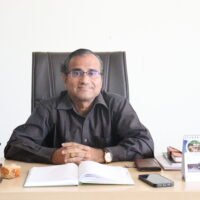About Us
Electrical engineering, a dynamic and contemporary engineering subfield, encompasses diverse specializations such as power generation, motors, batteries, control systems, and commercial appliances. Within this expansive domain, professionals engage with everything from minuscule microchips to colossal electrical systems and power grids. The field offers a spectrum of potential areas for specialization, highlighting the versatility and breadth of expertise required.
Crucially, electrical engineering plays an indispensable role in modern society, ensuring the seamless integration of electricity into our daily lives. Electrical engineers are tasked with optimizing the utilization of energy resources, facilitating the presence of electricity in homes, industries, factories, and businesses. Their expertise is fundamental to the functioning of power generation, distribution, and utilization systems that power our technologically advanced world.
In the absence of electrical engineers, the intricate network of electrical infrastructure sustaining our interconnected world would cease to operate. These professionals are at the forefront of innovation, driving advancements in technology and contributing significantly to the progress of society. The profound impact of electrical engineering extends far beyond the confines of individual devices, reaching into the very foundation of the modern way of life.
Backed by a world-class faculty and cutting-edge facilities, our commitment to excellence extends to our training approach. We regularly invite industry professionals and skilled experts from academia to share insights on the latest technologies. Active participation in conferences is encouraged, providing students with opportunities to present research papers and engage with the broader academic and professional community. In essence, our Computer Science programs blend theoretical understanding with practical application, fostering individuals ready to contribute meaningfully to the ever-evolving field of Electrical Engineering.
Vision
To produce globally effective, socially responsible, innovative Women Electrical Engineers of high quality and ethics, who can contribute to the needs of the society in diverse fields through professional competence, research ability and leadership.
Mission
M1: To equip students with adequate electrical engineering knowledge and skills, to motivate for meaningful contribution useful to the society needs.
M2: To produce women electrical engineers with strong base, clear thoughts, strong theoretical/analytical foundation, and articulation needed to generate quality professionals in diverse societal and industrial applications.
M3: To provide adequate laboratory facilities for syllabus oriented research and innovation.

Message from Head of EE Department
I extend a warm welcome to the Department of Electrical Engineering’s students and parents. I’m happy to report that the department has a strong foundation of knowledgeable, experienced faculty who are committed to teaching and actively involved in knowledge advancement. Students studying electrical engineering at the undergraduate level have access to a wide range of topics, including Power electronics, power systems, electromagnetics, networks, control systems, Electrical machines. I recommend exploring our website for more details, to learn more about our undergraduate curriculum in detail. Our primary goal is to empower students with the principles and skills of electrical engineering, necessary to have an impact on the world. We are happy to have you as an undergraduate student in the Electrical Engineering Department and we look forward to supporting your success. Krishan Chandra Mishra H.O.D, EE Department





